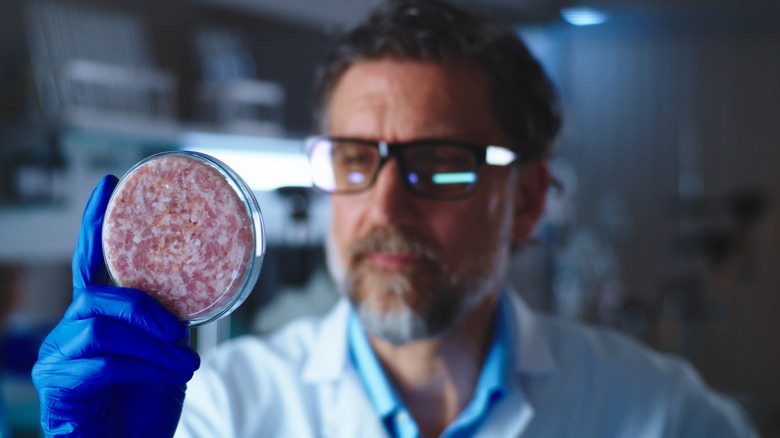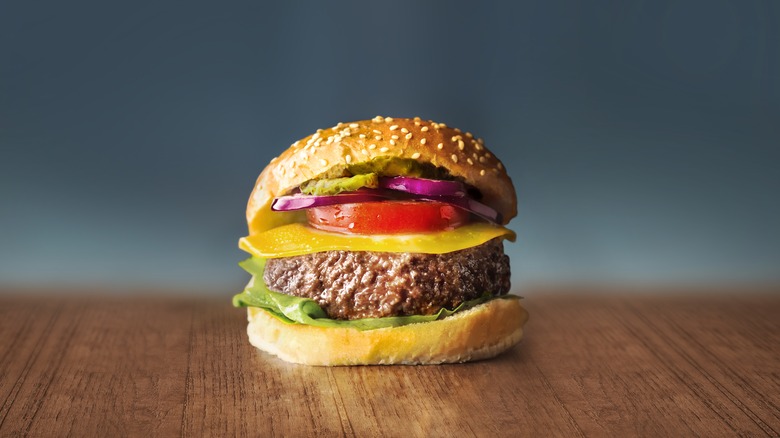How The Cultivated Meat Industry Just Took A Massive Leap Forward
The livestock industry alone takes up 77% of all agricultural land (via Our World In Data), consumes about 30% of all freshwater use (via Science Direct), and produces 18% of the greenhouse gases that are responsible for global warming (via McGill University). When you add all of this to the industry's supply chain insecurities, unveiled during the COVID-19 pandemic (via Meat and Poultry), plus the rising food prices and a growing population, it seems evident that to be sustainable, the animal agriculture industry needs a new direction. Fortunately, steps are already being taken.
With biotechnology, a combination of stem cell technology and tissue engineering, food scientists can grow meat inside labs through fermentation (via Good Food Institute), giving it the name "cultivated meat." The result is a zero-waste, antibiotic-free, completely traceable animal product that one 2021 study by CE Delft projected could use up to 95% less land, 78% less water, and cause 92% less global warming. But the benefits don't stop there. Cultivated meat won't only just be healthier for you (via Center for Consumer Research) — but for everyone in the world by improving accessibility in malnourished communities (via Food and Nutrition).
So why isn't cultivated meat everywhere by now? Because it's insanely expensive (via Vox). However, the good news is that SCiFi Foods, a San Leandro, California-based company developing cell-based beef (via Vegconomist), just hit a breakthrough with its newest technology.
A step in the right direction
Using a genetic engineering tool that uses DNA sequencing to modify genes called CRISPR (via The Jackson Library), SCiFi Foods was able to reduce the production cost of their cultivated beef with the use of self-developing cells (via Food Dive). The game-changing development allows cultured beef cells to grow on their own inside a bioreactor, a challenge that CEO Joshua March told Food Dive is specific to cultivated beef production. With it, the company has made a massive step forward in making cell-based beef commercially available — decreasing its price 1,000-fold (via Food Navigator).
Going forward, SCiFi plans to produce its first product, a burger made from a blend of both cultivated and plant-based meat (via Food Dive). At their pilot location, the burgers will go for $10 a piece, but there's potential for the price to decrease to $1 per burger once they reach large-scale production (via Food Navigator). While you're still years away from ordering a 100% cell-based burger from the McDonald's dollar menu, this is a colossal achievement — especially considering the first lab-grown burger cost $330,000 in 2013 (viaForbes).

